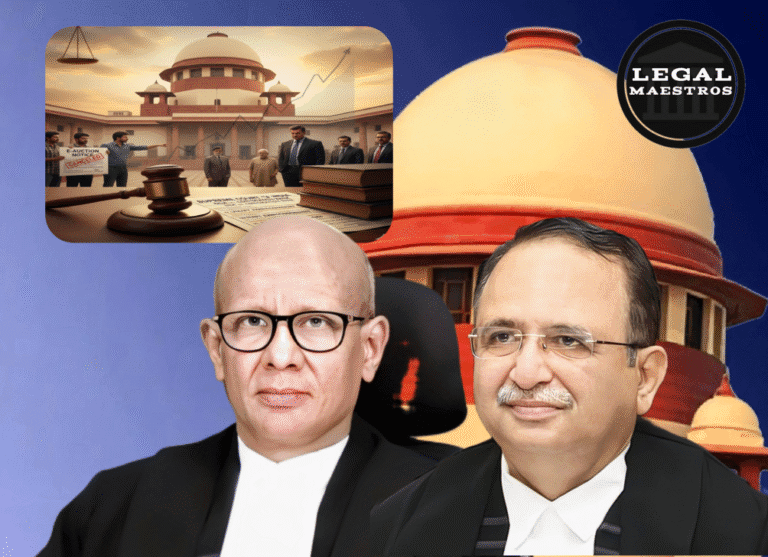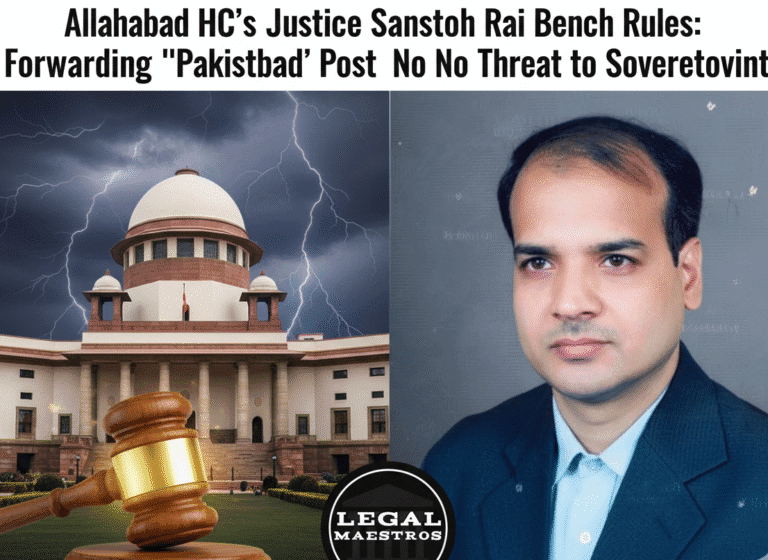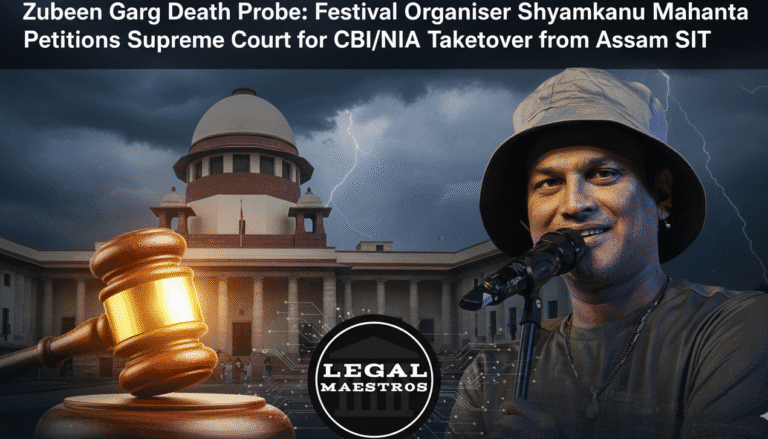
The case of State of Maharashtra (Supreme Court of India) made the perplexing factor of what exactly can be considered abetment to suicide as provided under the provisions of Section 306 of the Indian Penal Code, 1860.
Abhinav Mohan Delkar v. State of Maharashtra & Ors.. The case involved the suicide of a seven time Member of Parliament (M.P), who in his suicide note implicated numerous people on conspiracy to tarnish his image and destroy his political career which he termed as the reason behind his decision to commit suicide. The son of the M.P., appellant, appealed on the basis of a High Court order which had set aside First Information Reports (FIRs) recorded on the basis of the suicide note. The judgment of the Supreme Court by Justice K. Vinod Chandran entails an expanded analysis of the law as applied to abetment, in terms of the necessity of a positive, proximate act, and the presence of the idea of
mens rea.
CaseHistory
On the 22nd of February, 2021, the deceased M.P. committed suicide. The suicide note that he left behind showed a list of a couple of individuals, including individuals in the administration and the police who he alleged had conspired to defame and degrade him hence terminating his political career and his social position. These people, according to the son of the M.P., were out to damage the image of his father, so that he would not be able to fight elections in future, and their other aim was to mafia-style seize control of a college run by a trust run by the M.P. According to the M.P. state made by the son with the police, the latter was becoming the victim of constant harassment, threats that were made in the streets, humiliations, and even attempts at extortion. Prior to the case of contempt that led to the defection case, the M.P. had already pursued objections on grounds of his humiliation and violation of parliamentary regulations before the Lok Sabha Committee of Privileges in which he was not invited to a Liberation Day event in his constituency. He also had a grievance of a criminal case which had been re-investigated by the police on directions of the Superintendent of Police.
For any queries or to publish an article or post or advertisement on our platform, do call at +91 6377460764 or email us at contact@legalmaestros.com.
Core Legal Question What is Abetment?
The main issue before the Court was whether all claims of harassment, rebuke or insult as claimed in the present case, will constitute abetment the individual receiving the harassment takes his life. The Court observed that in spite of the large number of precedents, police personnel repeatedly fail to comprehend what abetment under Section 306 of the IPC, to be read with Section 107, consists of. In the judgment, it has been explained that to uphold a charge of abetment to suicide there should be a clear
on mental consciousness (mens rea), or on guilty mind of the accused. It demands a positive act or a direct act which will either cause or help the deceased individual to commit suicide. The act was not meant just to cause the victim some harm, but to leave the victim in such a state that s/he can only commit suicide.
Wholesomeness of Even a Proximate Act
For any queries or to publish an article or post or advertisement on our platform, do call at +91 6377460764 or email us at contact@legalmaestros.com.
One of the Court-highlighted principles is the element of a “proximate prior act” to provide the direct line of causation between the actions of the accused and resulting suicide. The Court has considered some past case laws and concluded that proximal incident or action immediately prior to the suicide is a highly pertinent consideration where the death situation was a direct outcome of the actions of the accused. This is compared in the judgment to the straw that breaks the camels back- a last instance in many that leads to a sudden and unpredictable suicide. Although the nagging harassment at intermittent episodes may be alleged, the final event that is proximate to have pushed the individual to the ultimate step of committing suicide himself must be proved. The Court held that, this, in itself, does not provide the positive instigation constituting abetment as a person who was continually harassed may but run to suicide at any time but that standing alone, is not substantial and provides no cause to lead to any result of positive instigation becoming an abetment.
The Mens Rea Role
The Court differentiated the sense of the victim having no choice but committing suicide and a desire of the accused to cause suicide to the victim. The latter is what comprises
mens rea. The Court held that the question is not whether the accused caused the victim to harbor at least a likelihood of committing suicide, but whether by his actions, he or she intended to make the victim commit suicide, which must be deduced through conscious means i.e. statements or other acts, and the surrounding circumstances. An insult or something said in a fit of anger, when the speaker does not intend that the results of his actions should actually come, cannot be supposed to be instigation. The Court emphasized that persons do not necessarily react to pressure in the same manner, and to attribute pressure to the agent of pressure without something more to identify a subjective motive would be an inappropriate application of the rule. It was observed in the judgment that there can be no finding of abetment under Section 306 where there is no intent to drive another person to suicidal death and where there is no conscious, deliberate act of doing so.
For any queries or to publish an article or post or advertisement on our platform, do call at +91 6377460764 or email us at contact@legalmaestros.com.
The Findings of Facts of the Court
The Court, on applying these principles to the facts of the case, came up with no proximate connection between the supposed harassment and the suicide committed by the M.P. The M.P. was an old politician, who had dared say nay to the supposed insults, by presenting himself to the Committee of Privileges which had taken measures on his side. And there was no interim event between the fact that the Committee had promised him that they would investigate, and his 10 days later suicide. The Court had determined that the incidences of disrespect, like not being called to one of the functions, could not be viewed as a direct cause of suicidal behaviour, even after a few months. Moreover the Court cast a cloud of doubt as to the very document of the suicide note itself observing that the allegations of extortion and attempts to acquire the trust were first put forth in the document; the allegations had not been brought up in the former complaints to the Speaker or to the Committee of Privileges. There was also the consideration of the delay in the delivery of suicide note to the son of the M.P. by the police and the reason that the handwriting was not even checked. With these facts in place the Supreme Court confirmed the High Courts judgment to dismiss the FIR but ruled that the allegations made are not a case of abetment of suicide.







